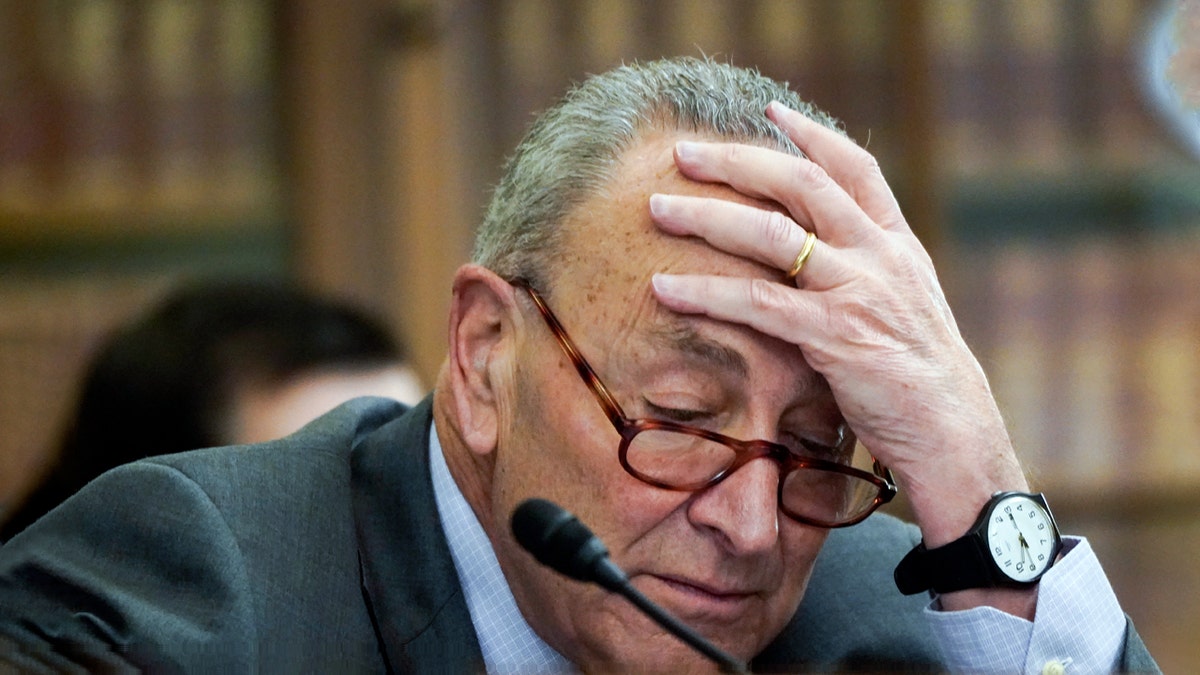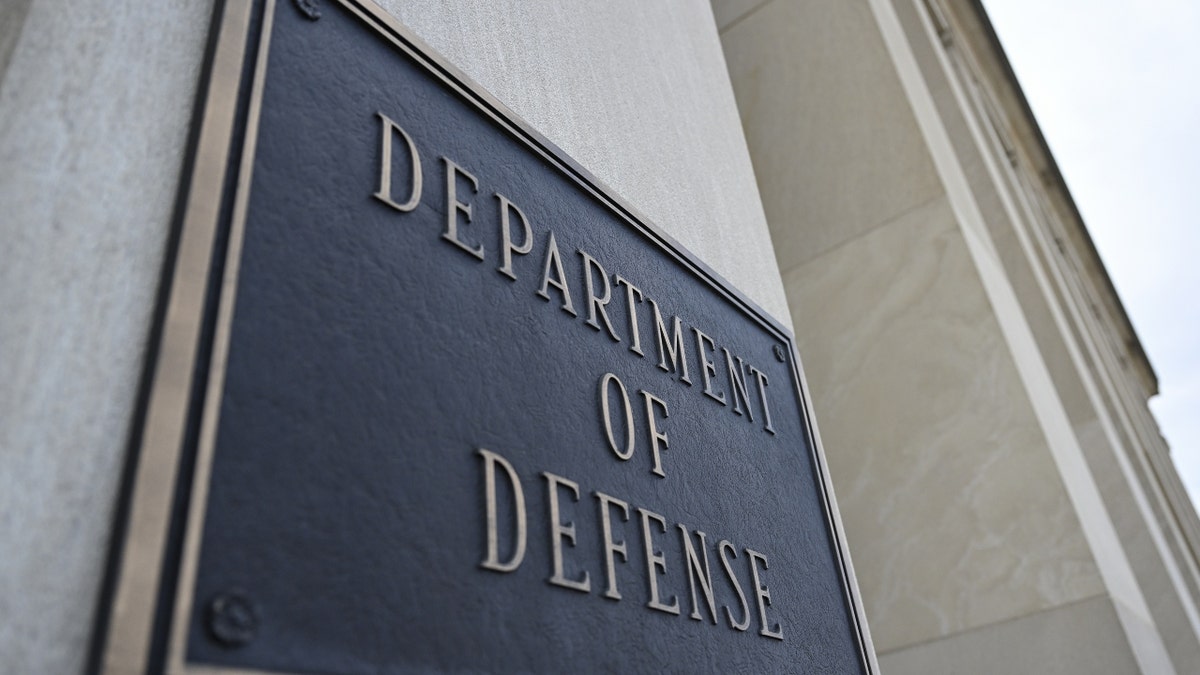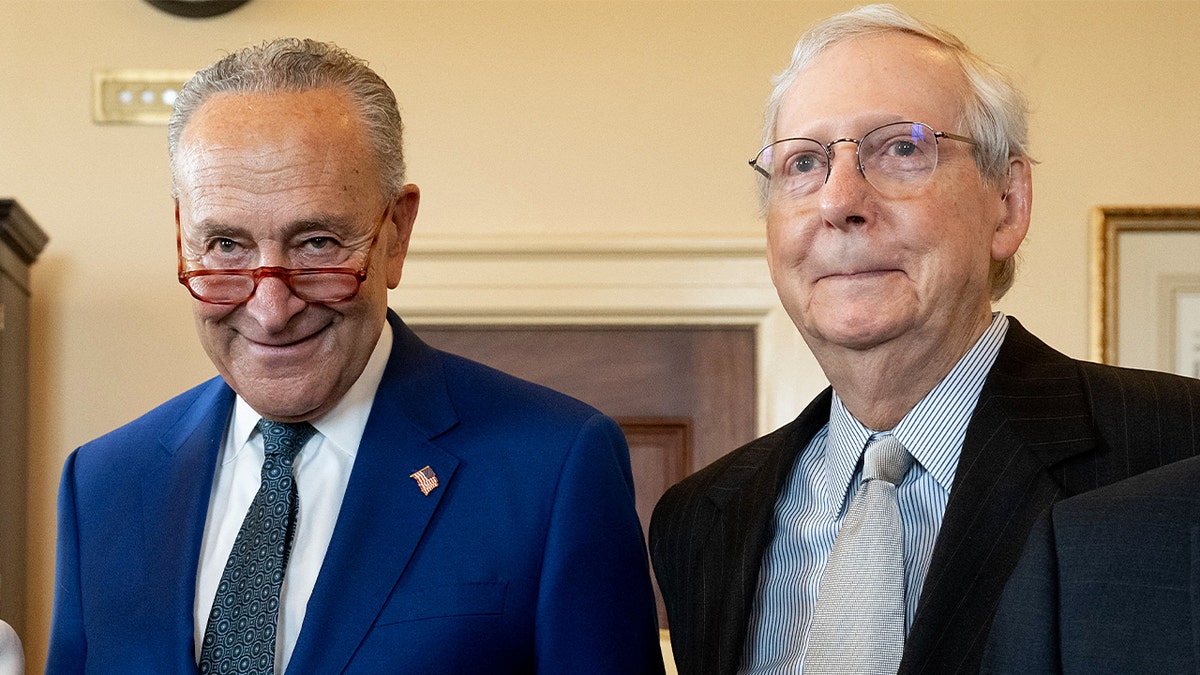Marjorie Taylor Greene files motion to vacate House speaker after spending bill passes
Fox News’ Aishah Hasnie reports on Rep. Marjorie Taylor Greene, R-Ga., filing a motion to vacate against House Speaker Mike Johnson, and ‘Outnumbered’ co-hosts react to the news.
The Senate failed to pass a $1.2T government spending package that was approved by the House earlier on Friday, ushering in a partial government shutdown.
The upper chamber's Republicans and Democrats did not reach a deal in which they would forego a lengthy period of debate and swiftly take a vote on the spending bills in time to avoid the shutdown. Due to disagreements between the parties on whether to consider several amendments, the bills weren't passed prior to the 12:01 a.m. deadline on Saturday.
However, within the 11 p.m. hour on Friday night, the parties appeared to reach an agreement, with senators returning to the floor. Two senior GOP Senate sources confirmed to Fox News Digital that votes on amendments and the spending package are expected shortly after midnight. Majority Leader Chuck Schumer, D-N.Y., announced that an agreement was reached on the floor with only minutes until midnight, adding that several amendment votes would take place first.
The House passed the appropriations measures in the late morning on Friday by a vote of 286 to 134. However, the majority of Republican representatives voted against the package, demonstrating the deep-running resentment of the spending bills' content and the procedure they followed.
REP. MARJORIE TAYLOR GREENE CALLS FOR VOTE TO OUST SPEAKER JOHNSON OVER SPENDING DEAL

Senate Majority Leader Chuck Schumer of N.Y. (Elizabeth Frantz/Pool via AP)
This unhappiness was evident among Senate Republicans as well, several of whom refused to allow the group of bills to pass in an expedited fashion in order to avoid a partial government shutdown unless Democrats would be willing to take votes on several amendments, including multiple that were focused on the southern border and illegal immigration.
But the Democrats were similarly unwilling to take votes on all the GOP-requested amendments, particularly those with the capability of passing with bipartisan support, as they would send the package back to the house. They were also against voting on any amendments related to illegal immigration, as they might harm vulnerable senators up for re-election in November, GOP Senate sources told Fox News Digital.
TOP GOP LAWMAKER ANNOUNCES EARLY EXIT, LEAVING REPUBLICANS WITH TEMPORARY ONE-SEAT MAJORITY
The government is technically in a partial shutdown, but given the fact that the shutdown occurred during non-work hours and ahead of a weekend, the full affects won't be felt unless it extends until Monday. If a spending package is not passed by then, the departments of Defense, Homeland Security, Labor, and Health and Human Services, as well as Financial Services and General Government, the legislative branch, and State and Foreign Operations will be affected.

The departments of Defense, Homeland Security, Labor, and Health and Human Services, as well as Financial Services and General Government, the legislative branch, and State and Foreign Operations will shut down as a result. (Photo by Celal Gunes/Anadolu Agency via Getty Images)
Other areas of the government won't experience any gaps in funding, as the first $460 billion package was passed on March 8 to fund the Agriculture and the Food and Drug Administration (FDA), the Justice and Commerce departments, Energy and Water Development, the Department of Interior, and Transportation and Housing.
While the Senate only failed to pass the second of the two six-bill packages, those six appropriations are set to fund departments that make up nearly 70% of the federal government. The affected government departments and agencies are now required to shut down, but they won't completely cease operating.
TIM SCOTT LABELS SCHUMER'S CALL FOR ISRAELI LEADER CHANGE 'ELECTORAL INTERFERENCE'

US Senate Majority Leader Chuck Schumer (L), Democrat of New York; and Senate Minority Leader Mitch McConnell, Republican of Kentucky, pose for a photo before a meeting with Italian Prime Minister Giorgia Meloni at the US Capitol in Washington, DC, prior to a meeting on July 27, 2023. (Saul Loeb)
CLICK HERE TO GET THE FOX NEWS APP
Certain roles and functions of workers and their various departments and agencies deemed essential are required to continue, though they will not be paid during the lapse in government funding. For example, officers with the Transportation Security Administration (TSA) will continue to work and allow travel functions, and active-duty military members will also continue their duties, which are necessary to U.S. national security.
The government cannot continue its full regular functions until Congress passes appropriations to resume funding.














































